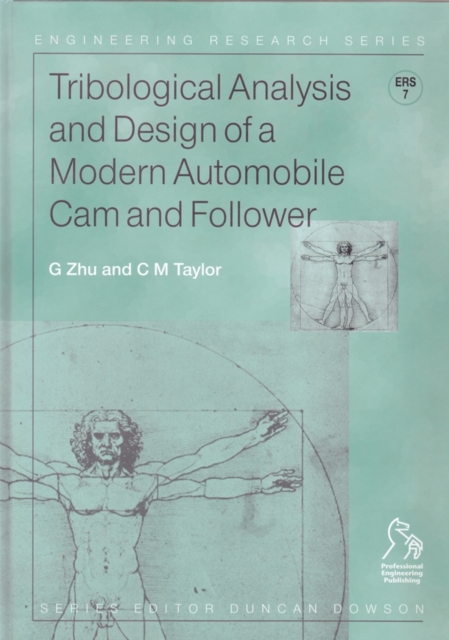
Tribological Analysis and Design of a Modern Automobile Cam and Follower Hardback
by Guangrui Zhu, Chris M (University of Leeds) Taylor
Part of the Engineering Research Series (REP) series
Hardback
- Information
Description
An Engineering Research Series title. This excellent and long awaited book is based upon extensive research carried out by the Institute of Tribology at the University of Leeds in the UK and the Ford Motor Company Ltd.
It is concerned with both the theoretical and experimental study of the tribological performance of an automobile valve train, having an offset taper cam and a domed follower, incorporated with an hydraulic lash adjuster, with particular reference to the ZETA engine valve train. A sophisticated theoretical model has been developed that predicts the tribological performance of the valve train, and also provides a useful tool for the consideration of the tribological design of valve trains.
Additionally the model can estimate the instantaneous and average rotational frequency of the follower, and the performance of the hydraulic lash adjuster. In order to validate the theoretical model, the experimental measurements have been correlated with the theoretical predictions that simulate the test conditions of the valve train.
The agreement between the measurements and the predictions show that the model is very reliable.
This gives readers great confidence in using the model when dealing with novel and alternative designs of the valve train. COMPLETE CONTENTS: Part One - Theoretical Formulation.
Kinematics and dynamics of the cam and followerHydraulic lash adjusterThe maximum hertzian stressesAsperity interactionsThe oil film thicknessFriction and power loss of the valve trainThe rotation of the followerThe overall solution procedure and input/output dataAn example of the tribological analysis of a valve train. Part Two - Experimental Study. Test apparatus and the instrumentationCalibration of the instrumentation and commissioning testsTest procedureData processingExperimental results and discussionsPart Three - Correlation of theory and experiments.
Experimental evidencesTheoretical predictionsComparison of results and discussionsOverall conclusions.
Information
-
Available to Order - This title is available to order, with delivery expected within 2 weeks
- Format:Hardback
- Pages:176 pages
- Publisher:John Wiley & Sons Inc
- Publication Date:22/06/2001
- Category:
- ISBN:9781860582035
Information
-
Available to Order - This title is available to order, with delivery expected within 2 weeks
- Format:Hardback
- Pages:176 pages
- Publisher:John Wiley & Sons Inc
- Publication Date:22/06/2001
- Category:
- ISBN:9781860582035